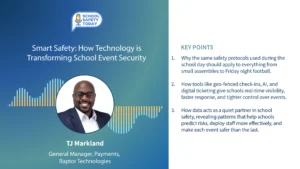Three EdTech Insights To Follow During Quarantine
One advantage to quarantine is some extra time for deep reading. Each successive day there are new ideas and trends being posted on the reinvention of edtech.
- Rebecca Heilweil reports on issues surrounding remote learning and cheating for Vox:
Still, these students’ experiences are another sign that, amid the pandemic, the hurried move to re-create in-person classes online has been far from smooth, especially when it comes to testing. As professors have tried to balance a desire to keep students learning, some institutions have gone to great lengths to catch students cheating during the quick adjustment to remote instruction.
Many of these tactics are short-term solutions, but they demonstrate that the bumpy move to online education — a transition that started long before the pandemic hit — requires increased digital surveillance of students to replicate old testing norms. That, or schools will have to come up with different ways to measure learning.
2. Chris Dede, the Timothy E. Wirth Professor in Learning Technologies at Harvard Graduate School of Education, posted some positive steps for k-12 districts:
To compensate for inequities in access to digital devices and the Internet, many teachers are using multiple methods to deliver lessons. For students without Internet access (an estimated 7 million families nationwide), some districts are lending families educational devices from classrooms and using school buses as mobile hotspots to support home-based instruction. Others are using the borrowed devices with the offline versions of their application software. In some cases, teachers are mailing instructional materials or using school buses to deliver schoolwork to students and placing physical drop boxes at community locations for handing in homework. Elsewhere, teachers and districts are utilizing public television educational programming as a basis for curriculum, or creating their own public-access televised instruction.
3. Clara Galan, Global Community Manager on the Adobe Education K-12 and Higher Education team looks further into the digital equity theme and lists industry programs such as the Sprint 1 Million Foundation Grant and the T-Mobile EmpowerED Grant.
What about those students who couldn’t access the video call and didn’t show up? Did they understand the new content? Is everything ok at home? Did they even eat breakfast? Questions like these haunt us, as we know that students who don’t have access and a supportive home environment aren’t being reached at all.








